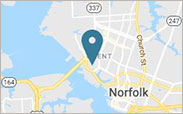Course Offerings

HeartCode® Basic Life Support (BLS)
Trains participants to promptly recognize several life-threatening emergencies and provide high-quality resuscitation and early use of an AED.

HeartCode® Advanced Cardiovascular Life Support (ACLS)
Builds on the foundation of lifesaving basic life support skills, emphasizing high-quality life support and high-performing teams.

HeartCode® Pediatric Advanced Life Support (PALS)
Aims to prepare healthcare providers to effectively manage pediatric patients with respiratory emergencies, shock, and cardiopulmonary arrest.

HeartCode® Basic Life Support (BLS)
Trains participants to promptly recognize several life-threatening emergencies and provide high-quality resuscitation and early use of an AED.

HeartCode® Advanced Cardiovascular Life Support (ACLS)
Builds on the foundation of lifesaving basic life support skills, emphasizing high-quality life support and high-performing teams.

HeartCode® Pediatric Advanced Life Support (PALS)
Aims to prepare healthcare providers to effectively manage pediatric patients with respiratory emergencies, shock, and cardiopulmonary arrest.

HeartCode® Basic Life Support (BLS)
Trains participants to promptly recognize several life-threatening emergencies and provide high-quality resuscitation and early use of an AED.

HeartCode® Advanced Cardiovascular Life Support (ACLS)
Builds on the foundation of lifesaving basic life support skills, emphasizing high-quality life support and high-performing teams.

HeartCode® Pediatric Advanced Life Support (PALS)
Aims to prepare healthcare providers to effectively manage pediatric patients with respiratory emergencies, shock, and cardiopulmonary arrest.

Blended HeartSaver® First Aid CPR AED
Trains participants to provide first aid, CPR, and use an AED in a safe, timely, and effective manner.

Advanced Trauma Life Support (ATLS) Provider Course
The American College of Surgeons course combines lecture and skills stations to teach standards of trauma care and practical life saving skills.

Advanced Stroke Life Support Blended Learning (ASLS)
Trains providers involved in the management of acute stroke patients.

Blended HeartSaver® First Aid CPR AED
Trains participants to provide first aid, CPR, and use an AED in a safe, timely, and effective manner.

Advanced Trauma Life Support (ATLS) Provider Course
The American College of Surgeons course combines lecture and skills stations to teach standards of trauma care and practical life saving skills.

Advanced Stroke Life Support Blended Learning (ASLS)
Trains providers involved in the management of acute stroke patients.

Blended HeartSaver® First Aid CPR AED
Trains participants to provide first aid, CPR, and use an AED in a safe, timely, and effective manner.

Advanced Trauma Life Support (ATLS) Provider Course
The American College of Surgeons course combines lecture and skills stations to teach standards of trauma care and practical life saving skills.

Advanced Stroke Life Support Blended Learning (ASLS)
Trains providers involved in the management of acute stroke patients.
.png)
Basic Life Support Instructor Essentials (BLS IE)
This course is designed to prepare instructor candidates to teach AHA BLS and Heartsaver instructor-led and blended learning courses.

Advanced Cardiovascular Life Support Instructor Essentials (ACLS IE)
This course is designed to prepare instructor candidates to teach AHA ACLS instructor-led and blended learning courses.

American College of Surgeons Advanced Trauma Life Support Instructor
(ACA ATLS Instructor) This course teaches physicians how to teach the Advanced Trauma Life Support (ATLS) Student Course
.png)
Basic Life Support Instructor Essentials (BLS IE)
This course is designed to prepare instructor candidates to teach AHA BLS and Heartsaver instructor-led and blended learning courses.

Advanced Cardiovascular Life Support Instructor Essentials (ACLS IE)
This course is designed to prepare instructor candidates to teach AHA ACLS instructor-led and blended learning courses.

American College of Surgeons Advanced Trauma Life Support Instructor
(ACA ATLS Instructor) This course teaches physicians how to teach the Advanced Trauma Life Support (ATLS) Student Course
.png)
Basic Life Support Instructor Essentials (BLS IE)
This course is designed to prepare instructor candidates to teach AHA BLS and Heartsaver instructor-led and blended learning courses.

Advanced Cardiovascular Life Support Instructor Essentials (ACLS IE)
This course is designed to prepare instructor candidates to teach AHA ACLS instructor-led and blended learning courses.

American College of Surgeons Advanced Trauma Life Support Instructor
(ACA ATLS Instructor) This course teaches physicians how to teach the Advanced Trauma Life Support (ATLS) Student Course

